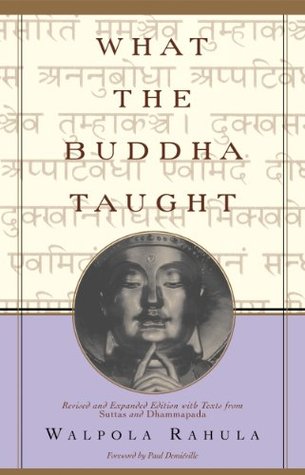More on this book
Community
Kindle Notes & Highlights
Read between
November 29 - December 10, 2024
The Buddha says: ‘Never by hatred is hatred appeased, but it is appeased by kindness. This is an eternal truth.’
‘The victor breeds hatred, and the defeated lies down in misery. He who renounces both victory and defeat is happy and peaceful.’
Buddhism aims at creating a society where the ruinous struggle for power is renounced; where calm and peace prevail away from conquest and defeat; where the persecution of the innocent is vehemently denounced; where one who conquers oneself is more respected than those who conquer millions by military and economic warfare; where hatred is conquered by kindness, and evil by goodness; where enmity, jealousy, ill-will and greed do not infect men’s minds; where compassion is the driving force of action; where all, including the least of living things, are treated with fairness, consideration and
...more
By endeavour, diligence, discipline, and self-mastery, let the wise man make (of himself) an island that no flood can overwhelm.
Though one may live a hundred years with no true insight and self-control, yet better, indeed, is a life of one day for a man who meditates in wisdom.
Come, behold this world, how it resembles an ornamented royal chariot, in which fools flounder, but for the wise there is no attachment to it.
Happy indeed we live without hate among the hateful. We live free from hatred amidst hateful men.
The conqueror begets enmity; the defeated lie down in distress. The peaceful rest in happiness, giving up both victory and defeat.
By degrees, little by little, from moment to moment, a wise man removes his own impurities, as a smith removes the dross of silver.
Then the Blessed One addressed the bhikkhus, saying: ‘Then, Bhikkhus, I address you now: Transient are conditioned things. Try to accomplish your aim with diligence.’ These were the last words of the Tathāgata. (From the Mabāparinibbāna-sutta of the Dīgha-nikāya, Sutta No. 16)


